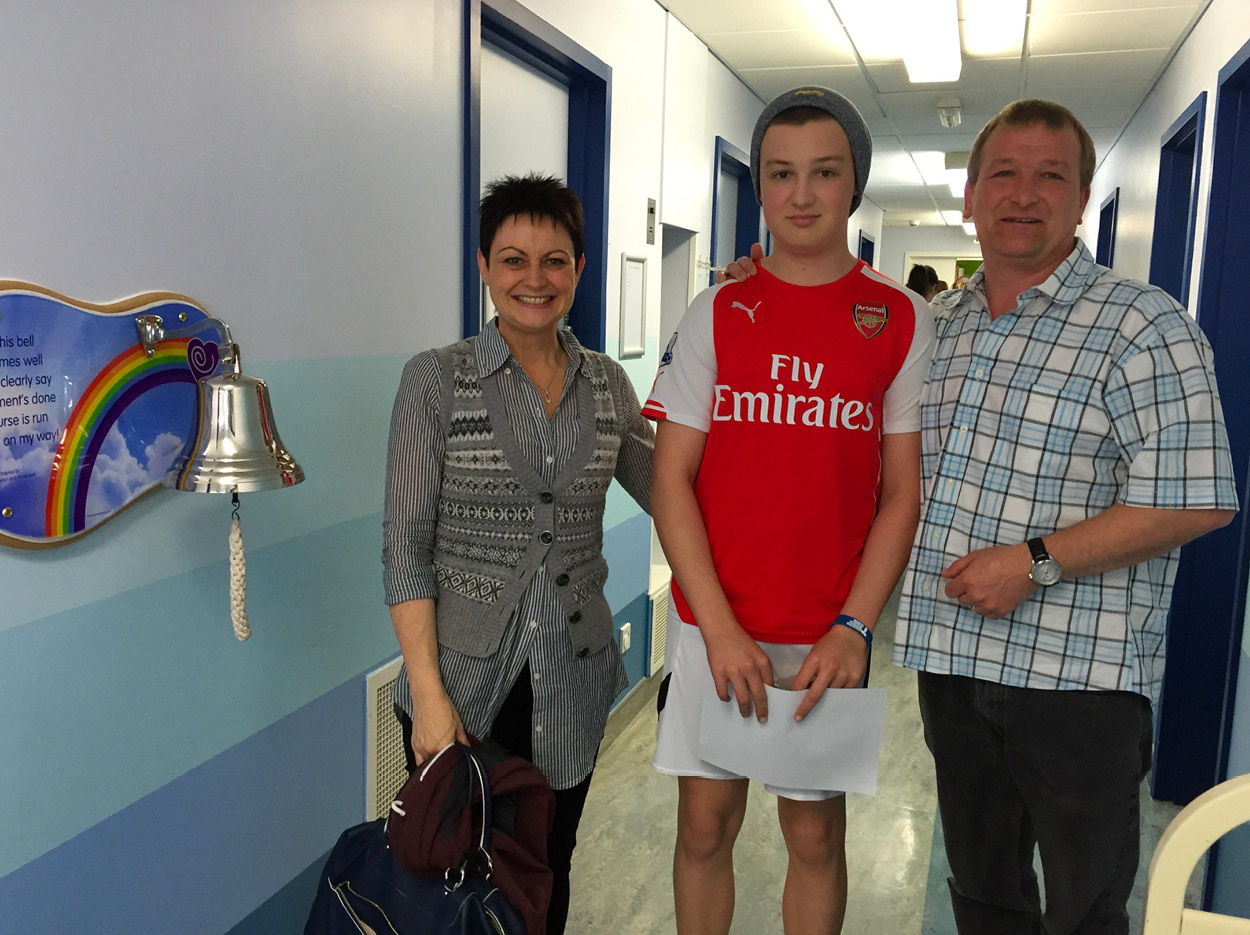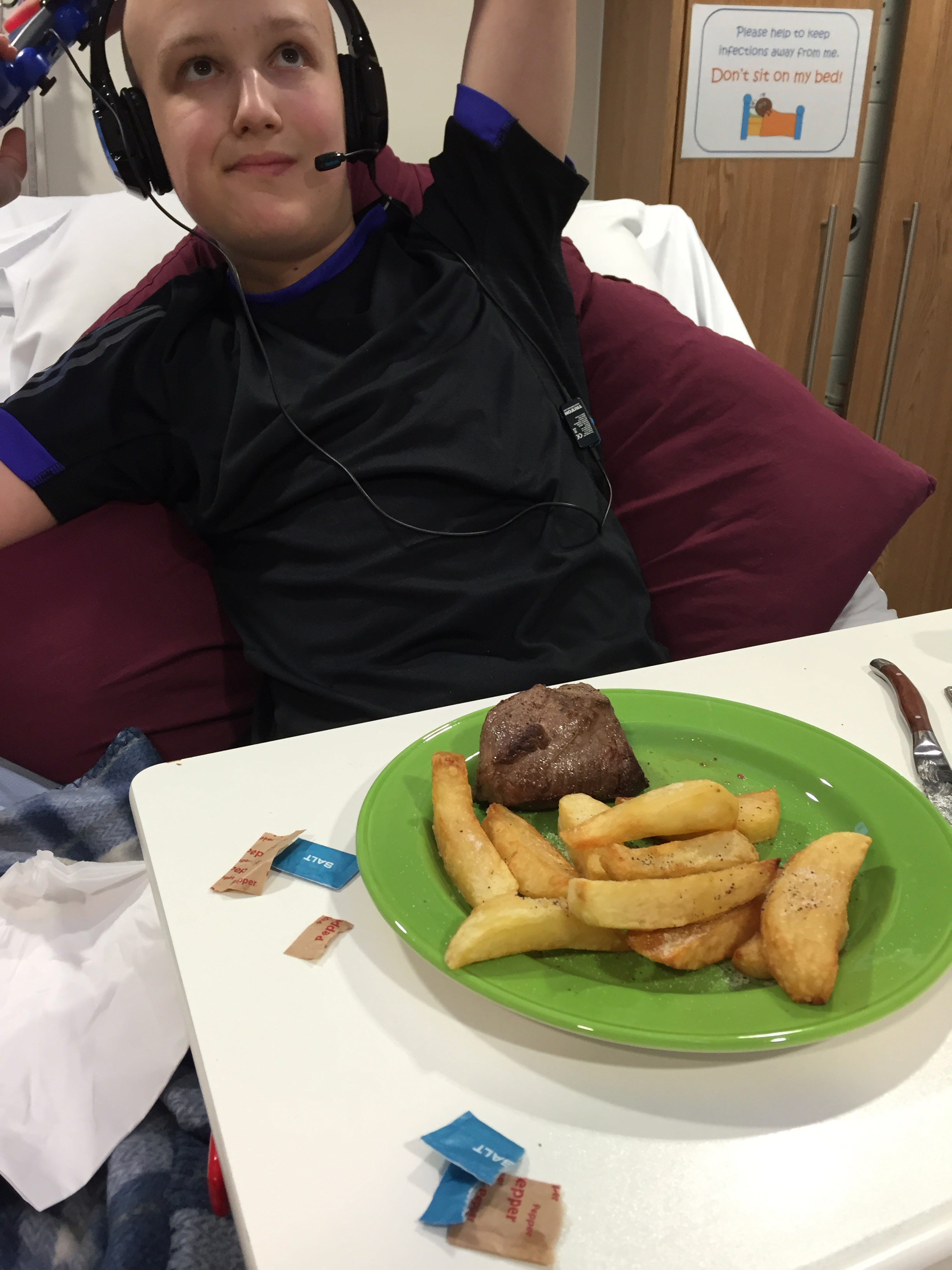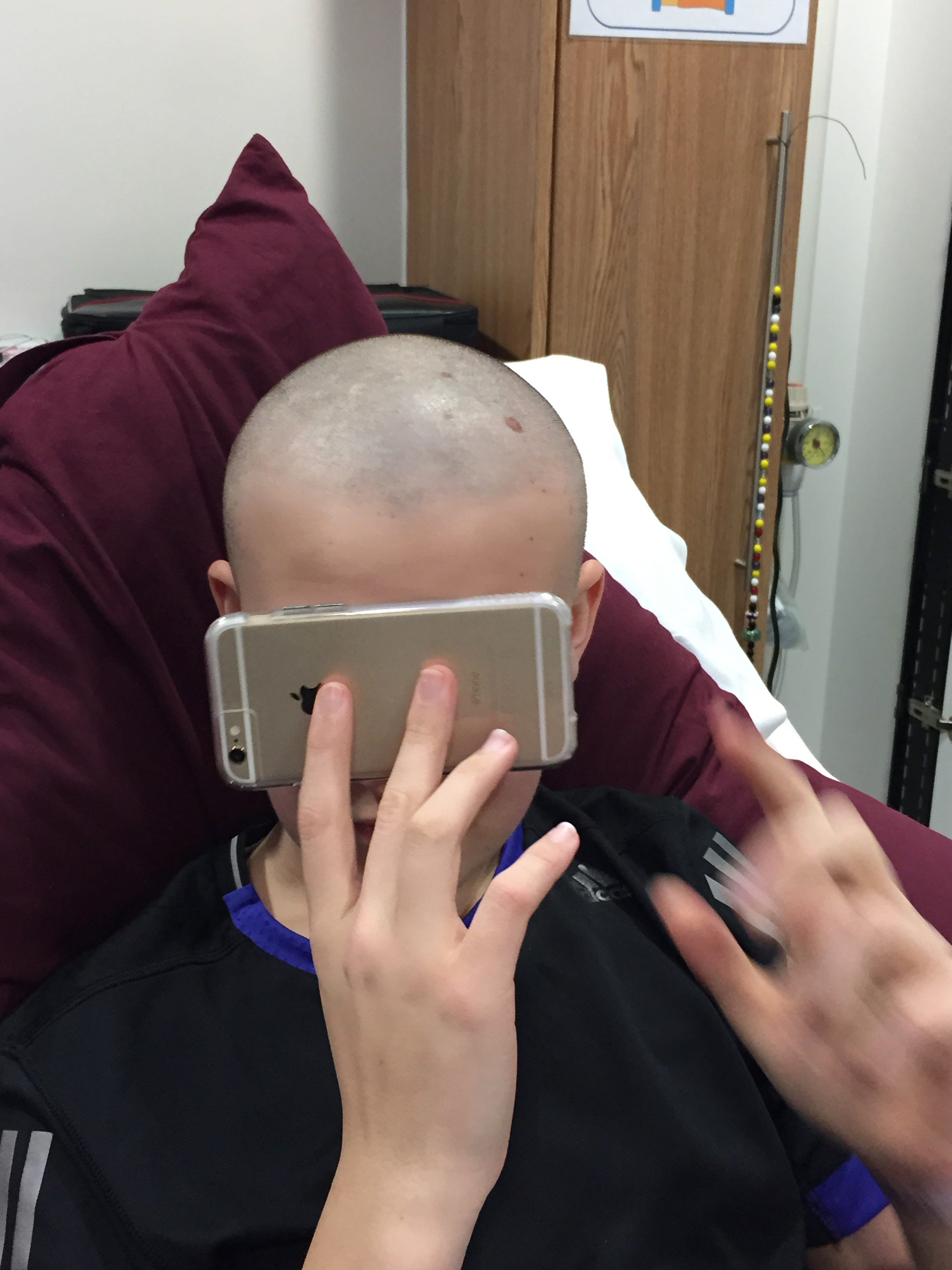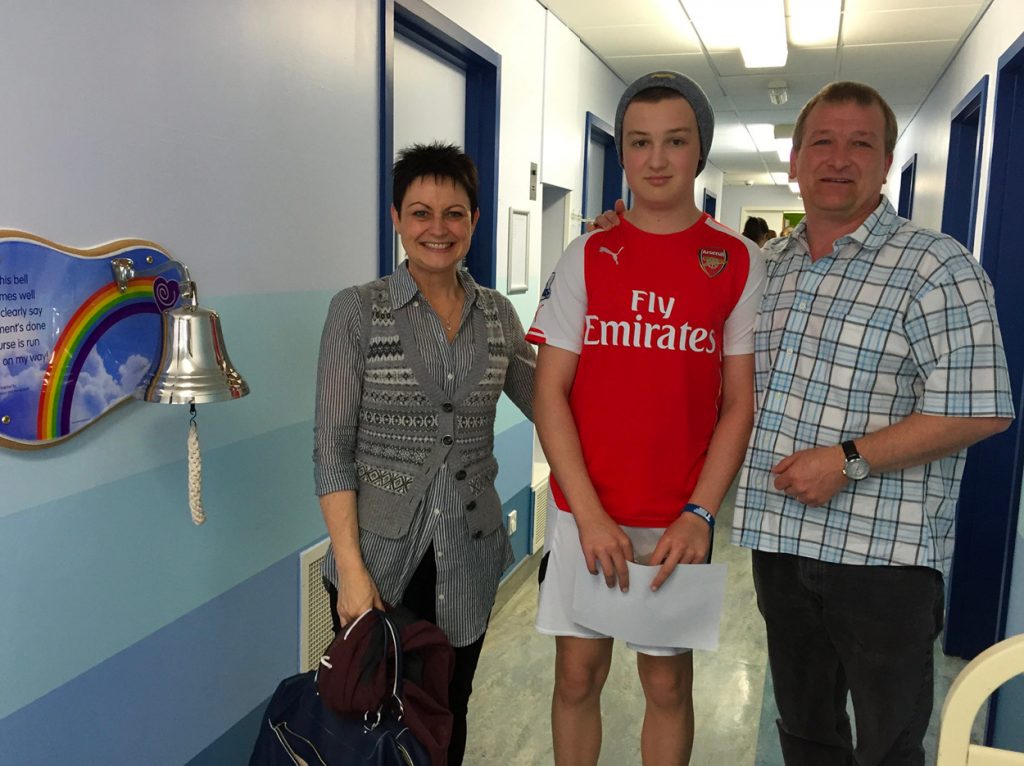
Former Transplant Patient To Tackle London2Paris
Nick Topley first took up cycling to aid his recovery from a Bone Marrow Transplant in 2012

The chemotherapy started on Saturday 14th February. There is not a way to describe it really. Apart from impending doom, or a ticking time-bomb until it took effect and you’d feel all of it. I think over the 5-6 months I was in hospital, I had chemotherapy intravenously 31 days; a whole month. There were all types of different chemo’s and drugs I was taking. Some were red which made your sick, wee and poo red. One was in a syringe and you could feel them putting it into my line. It was cold but you could also taste it. It had a metal taste. A metallic twang. There were plenty of others but those ones stood out for me.
After the course of chemotherapy, which lasted between 1 to 2 weeks, it was just then a waiting game, to recover to be as healthy as possible in hospital so you could have a week at home. A week rest to prepare yourself to do it all again. But it was never as easy as that. If anything, having that week at home and preparing yourself to come back into hospital, to do it all again, was something I can’t describe to you, or even myself. A waiting game, counting down to your own demise, once again. Knowing what is to come but there is nothing you can do about it.
Even after the chemo has finished you are extremely ill for at least another week, usually two. On top of that, I was having blood transfusions every day or two to top my haemoglobin back up or platelets. There was always a huge risk to infection, as I said previously, the cancer destroys your white blood cells, which then destroys your immune system – specifically your neutrophils – the white blood cells which fight infection, and the only way to fix this is with chemotherapy which also destroys it all. So, any type of infection, which the majority of people can fight off, posed a huge risk of life to me.
Hospital life was hard but just had to become the normal because I had no other option. Taking 30 tablets a day, at different intervals. Having your observations done every 4 hours. Trying to keep yourself entertained when you were healthy enough to do something than lie in bed being ill all day. I couldn’t tell you how many times I was physically sick. I assume it’s in the hundreds, if not more. There were times, especially whilst on the chemo, where I would fall asleep for 15-20 minutes then wake up to be sick a couple times. And then repeat that process for weeks. And when you are ill, you don’t eat. A lot of the time, nothing was coming up, just urging. Because my body couldn’t cope with it anymore. Even though they were the ‘norm’ they are horror stories, which no one would just accept. But you had to.

I remember I struggled to shower, to do the basic things you do to live. I would have a shower and I would come out and I couldn’t even walk back to my bed. I needed to sit down as I was exhausted. I thought I was going to faint. I had to get a disabled badge because when I could leave the hospital, I couldn’t walk to the car. I couldn’t walk more than 50 metres before needing a rest. And this was hard to accept. I was a fit and healthy 15-year-old, who loved sport and was playing six days a week, to suddenly not even being able to walk on my own. That was horrible.
Losing my hair was another side effect which I just paved over but that was awful as well. Going bald. When your hair starts to fall out, you sort of just don’t know. Do I shave it off or just let it fall out? But primarily, it makes you different again. A big sign saying ‘he is different’. And it may seem silly, but trust me, with everything else going on, it is something else which adds insult to injury. I remember, when I came out of hospital, we went on holiday as a family. We went for a meal, and I was wearing a hat because of my ‘hair’. And my dad told me to take it off. But I couldn’t. Even though I was just with family and in a foreign country. I couldn’t take it off. And then he got angry. But I couldn’t take it off. I was embarrassed with who I was.
A lot of these emotions and feelings and questions were always there. But I didn’t know what it was or how to voice it. I didn’t know what was going on. I already had enough on my plate and I didn’t want anymore. I didn’t know how to process it but also didn’t want to burden anyone else with it all. Everyone was already doing everything for me and I couldn’t give back anything. I had to get on with it though. I didn’t have time for my mental health.

When I look back at all of this, I still don’t process it. I can’t. Not to its full extent. I could write forever about my time in hospital. Maybe I will write more. But I look back and the physical side was horrendous. But what stands out, was telling my Mum, on multiple occasions, that I can’t do it anymore. I don’t want to do it anymore. The pain and suffering would just go away if I was dead. I couldn’t deal with what was happening to my body. I didn’t want to deal with it anymore. I didn’t want to hurt anymore. I was 15. I shouldn’t have to. I was hurting and didn’t want to anymore. I couldn’t see any lights at the end of the tunnel.
When you are in hospital, you hear all these stories of people relapsing. People whose treatment hasn’t worked and have to do it all again, but worse. After all of this, I always told myself, and continued to do so, I would rather die than have to go through that again. I genuinely couldn’t do it again after everything I had seen and experienced. I thought dying would be easier. I was embarrassed to be the person I had become. Something that has stuck with me for a long time. That continues to stick with me until recently. I was 15 and I was telling myself that I would rather die than face cancer again. I was broken.


Nick Topley first took up cycling to aid his recovery from a Bone Marrow Transplant in 2012

Cure Leukaemia Chief Executive, James McLaughlin, will run an extraordinary 224 miles across 16 locations throughout Blood Cancer Awareness Month this September.